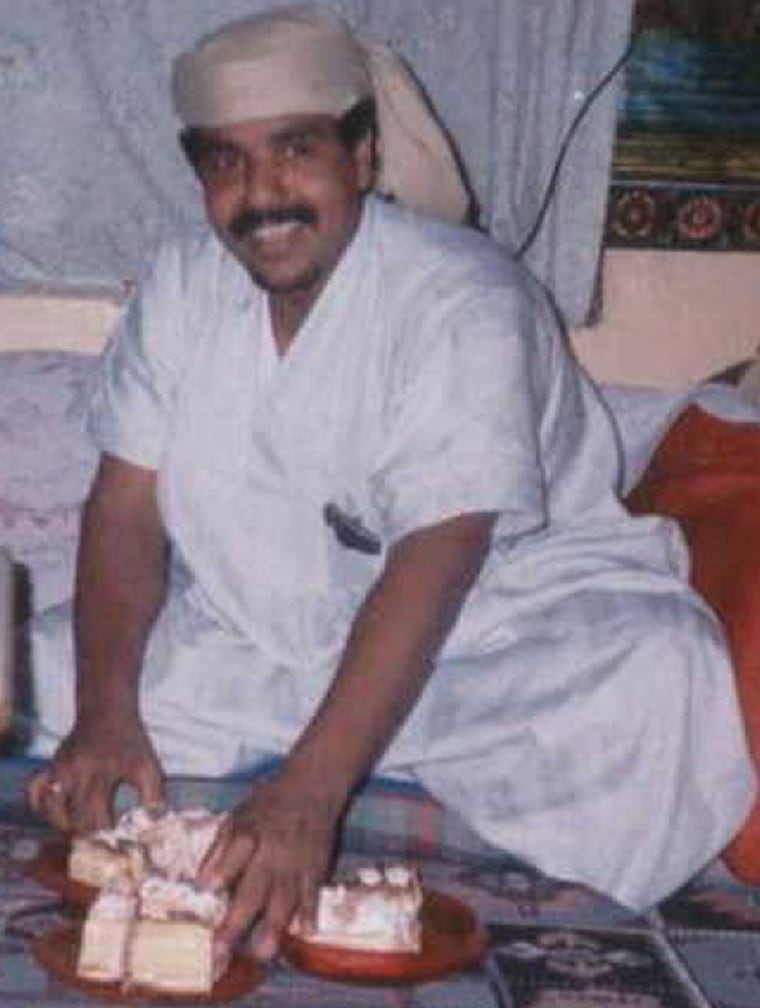A federal appeals court put the Bush administration’s military commissions for terrorist suspects back on track Friday, saying a detainee at the Guantanamo Bay prison who once was Osama bin Laden’s driver can stand trial.
A three-judge panel ruled 3-0 against Salim Ahmed Hamdan, whose case was halted by a federal judge on grounds that commission procedures were unlawful.
“Congress authorized the military commission that will try Hamdan,” said the U.S. Court of Appeals for the District of Columbia Circuit.
The protections of the 1949 Geneva Convention do not apply to al-Qaida and its members, so Hamdan does not have a right to enforce its provisions in court, the appeals judges said.
U.S. District Judge James Robertson ruled last year that Hamdan could not be tried by a military commission until a competent tribunal determined that he was not a prisoner of war.
“We believe the military commission is such a tribunal,” said the appeals court.
President Bush created the military commissions after the Sept. 11, 2001, attacks, opening a legal channel for alleged al-Qaida terrorists and their associates to be tried for war crimes.
Hamdan’s lawyers said Bush violated the separation of powers in the Constitution when he established military commissions.
The court disagreed, saying Bush relied on Congress’s joint resolution authorizing the use of force after the Sept. 11 attacks, as well as two congressionally enacted laws.
“We think it no answer to say, as Hamdan does, that this case is different because Congress did not formally declare war,” said the decision by appeals court judge A. Raymond Randolph.
Congress authorized the president to use all necessary and appropriate force in the war on terrorism.
More appeals
Two lawyers representing Hamdan, Neal Katyal and Navy Lt. Commander Charles D. Swift, said the appeals court ruling “is contrary to 200 years of constitutional law.” Katyal said Hamdan will seek further appeals.
“Today’s ruling places absolute trust in the president, unchecked by the Constitution, statutes of Congress, and longstanding treaties ratified by the Senate of the United States,” the two defense lawyers said in a statement.
A Pentagon spokesman, Maj. Michael Shavers, said officials were preparing a statement in response to the ruling.
Just 15 of the 520 detainees at Guantanamo Bay have been designated for such trials and only four have been charged.
The rest face indefinite detention, and the Bush administration refuses to grant any of the detainees prisoner-of-war status, a decision that has fueled international criticism of the United States.
Hamdan, a mechanic with a fourth-grade education, says he left his home country of Yemen looking for work and wound up in Afghanistan, working for bin Laden from 1997 until the U.S. attack in Afghanistan in 2001.
Defendant: Only trying to make money
Hamdan denies conspiring to engage in acts of terrorism and denies he was a member of al-Qaida.
Hamdan’s lawyers say he simply wanted to earn enough money to return to Yemen, buy his own vehicle and support his family as a driver.
The issue of military commissions has been eclipsed by alleged mistreatment of detainees at Guantanamo Bay, putting the Bush administration — and some of its loudest critics — on the defensive.
Sen. Dick Durbin, D-Ill., apologized a week after comparing interrogation at the Guantanamo Bay prison to the methods of Nazis and other repressive regimes.
Muslims protested overseas after U.S. officials acknowledged in May they had substantiated five cases in which military guards or interrogators mishandled the Quran. The human rights group Amnesty International condemned conditions at the prison camp, calling Guantanamo “the gulag of our time,” a description that President Bush dismissed as “absurd.”
